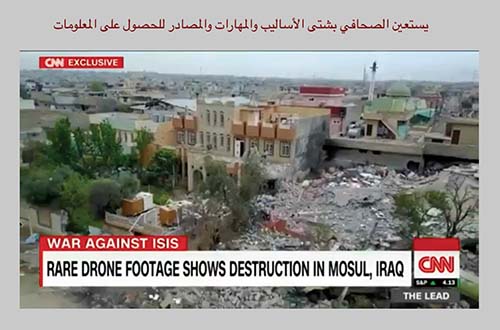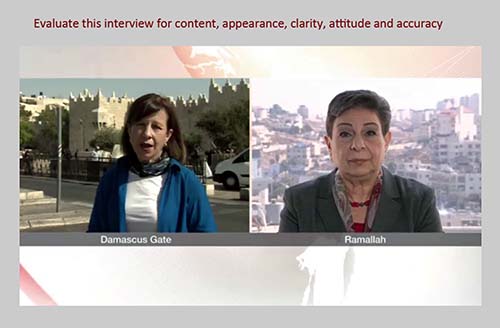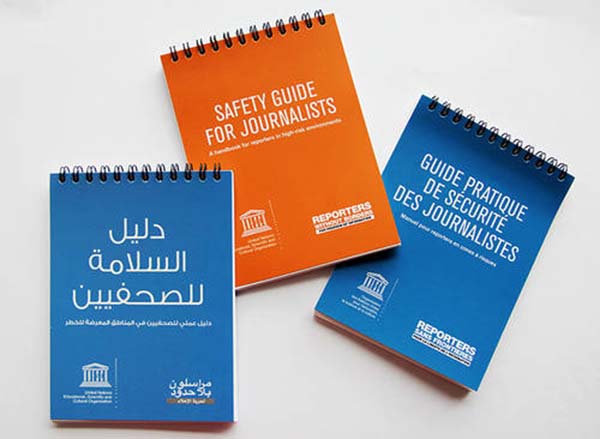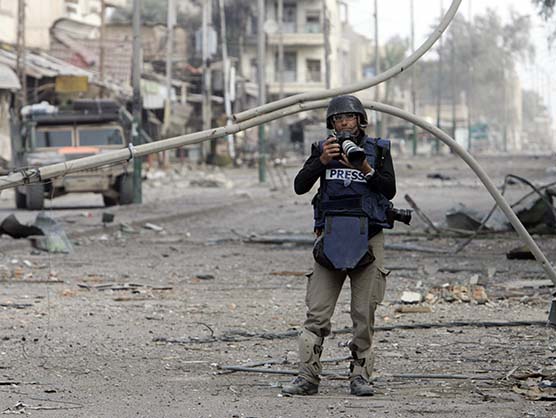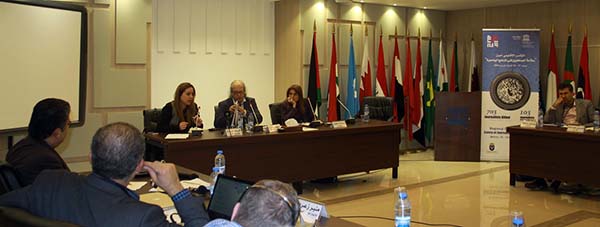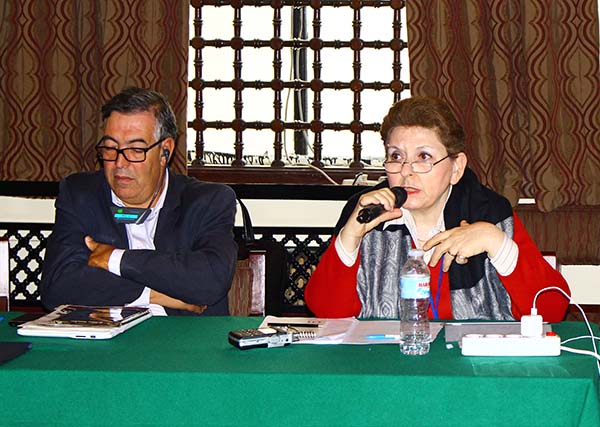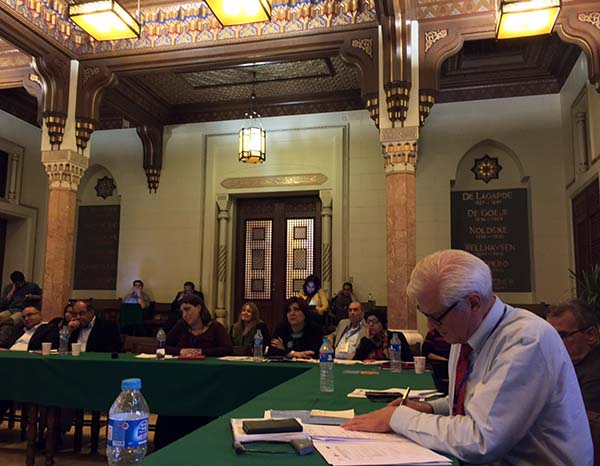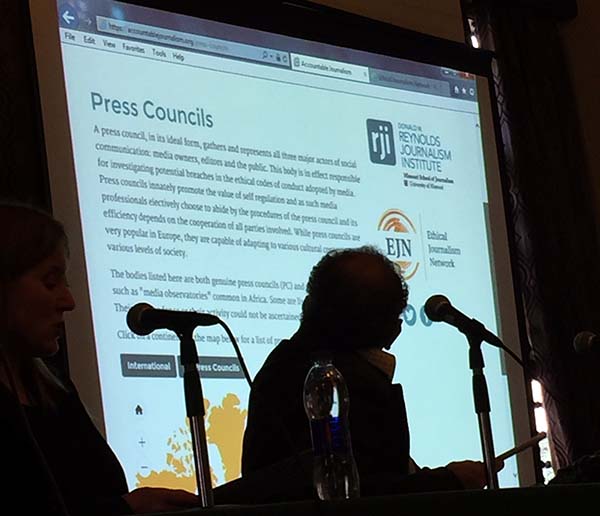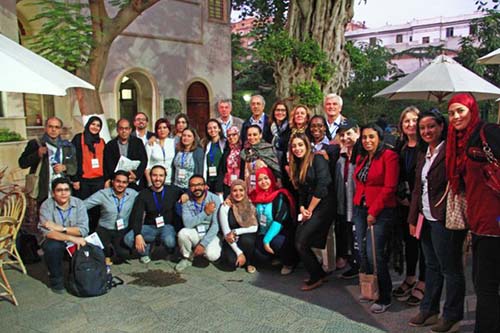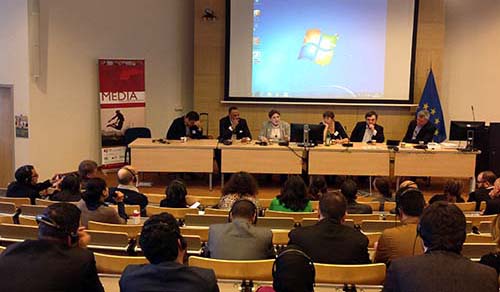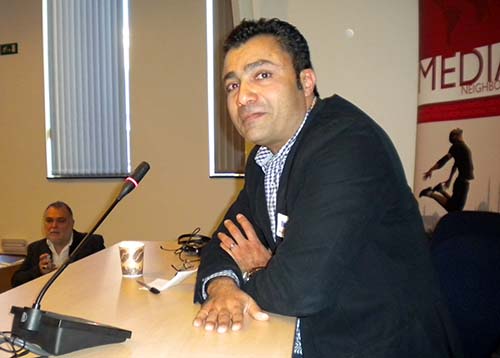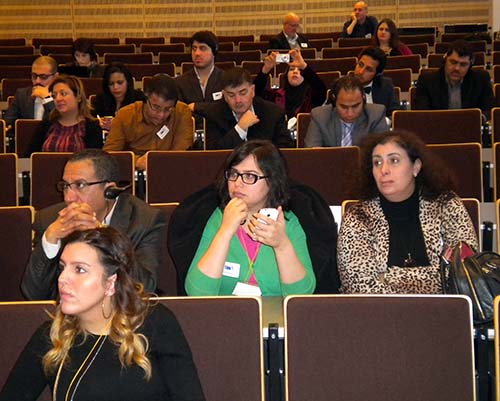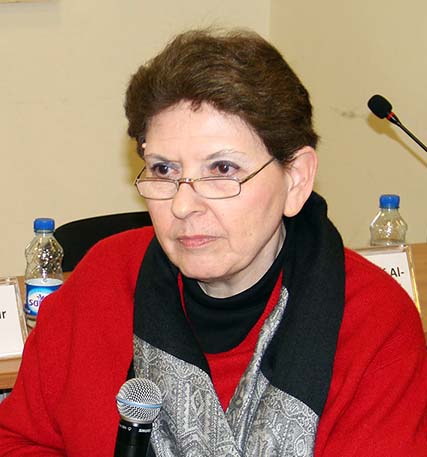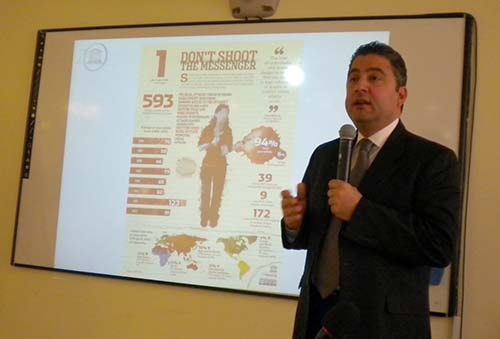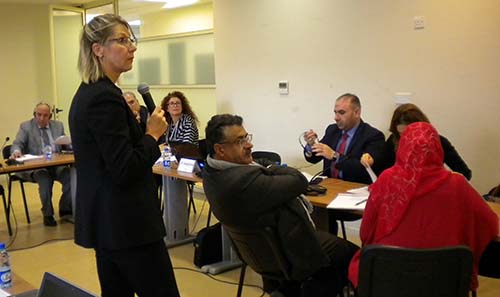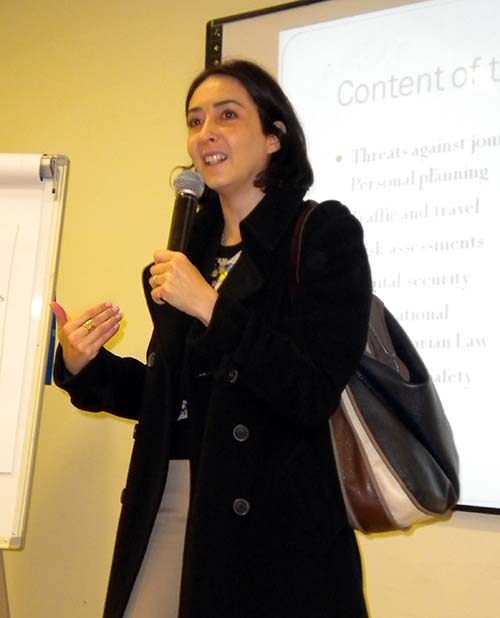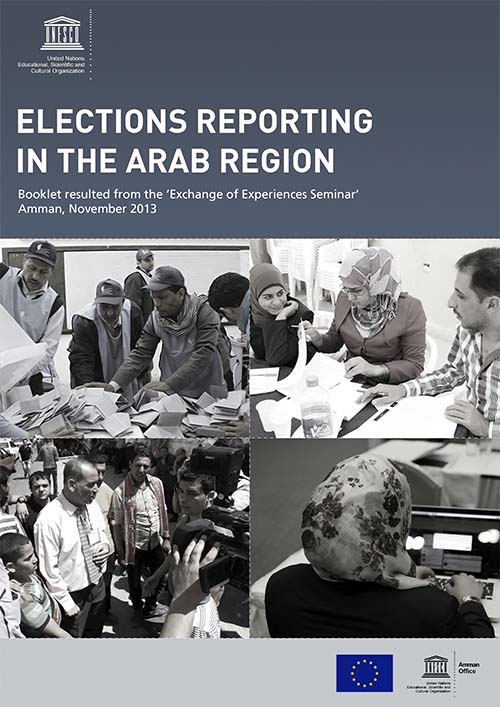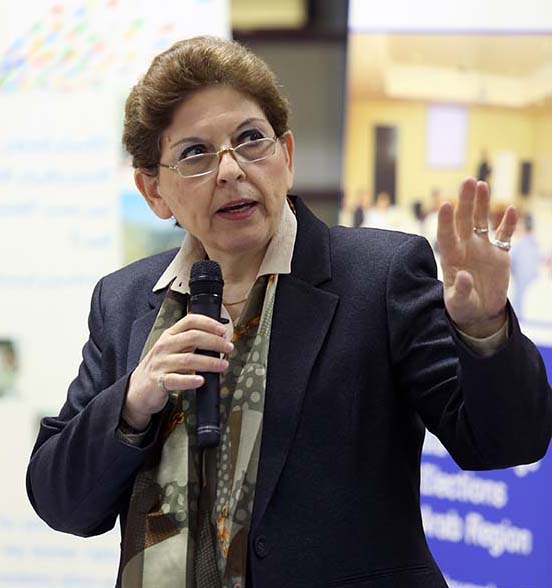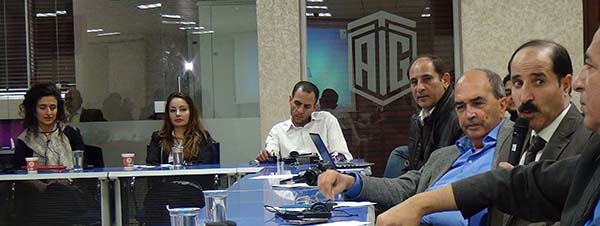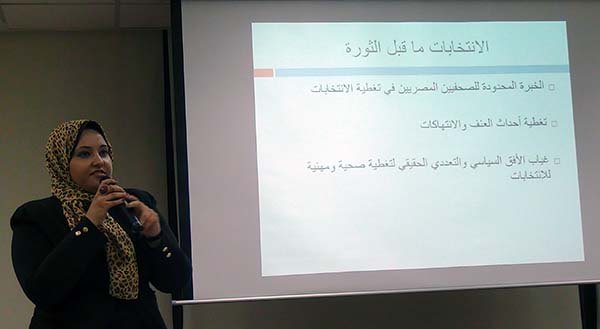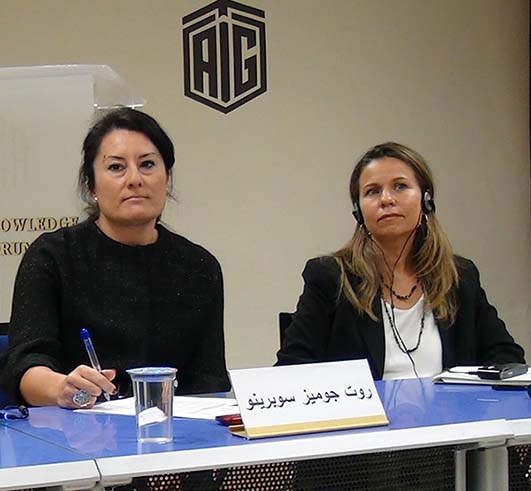Media professionals from state-run Middle East/North Africa broadcast organizations were immersed into intensive workshops on migration, refugees and human trafficking in the Euro-Mediterranean region in a bid to enhance their coverage of these complex topics.

Magda Abu-Fadil on best practices of covering migrants, refugees and human trafficking victims
Media Unlimited director Magda Abu-Fadil led the training that incorporated key migration concepts, the accurate use of terminology, legal considerations, best practices in coverage of migration, media ethics, safety considerations, mobile journalism principles and practice, and the impact of Covid-19 on the migration media environment.

Abeer Saady raises safety issues during coverage in sensitive areas
Journalist/trainer Abeer Saady and journalist/multimedia expert David Hands were co-trainers who, with Abu-Fadil, used the EUROMED Migration V (EMM5: 2020-2023) curriculum “Migration and Media: A Journalist’s Handbook” she authored as a primary reference in designing the workshops in Tunis in December 2022.

Profound discussion on media ethics
EMM5, an EU-funded program implemented by the International Centre for Migration Policy Development (ICMPD), organized the two consecutive workshops of three days each in cooperation with the Arab States Broadcasting Union (ASBU) and grouped participants from Algeria, Egypt, Lebanon, Libya, Palestine and Tunisia.
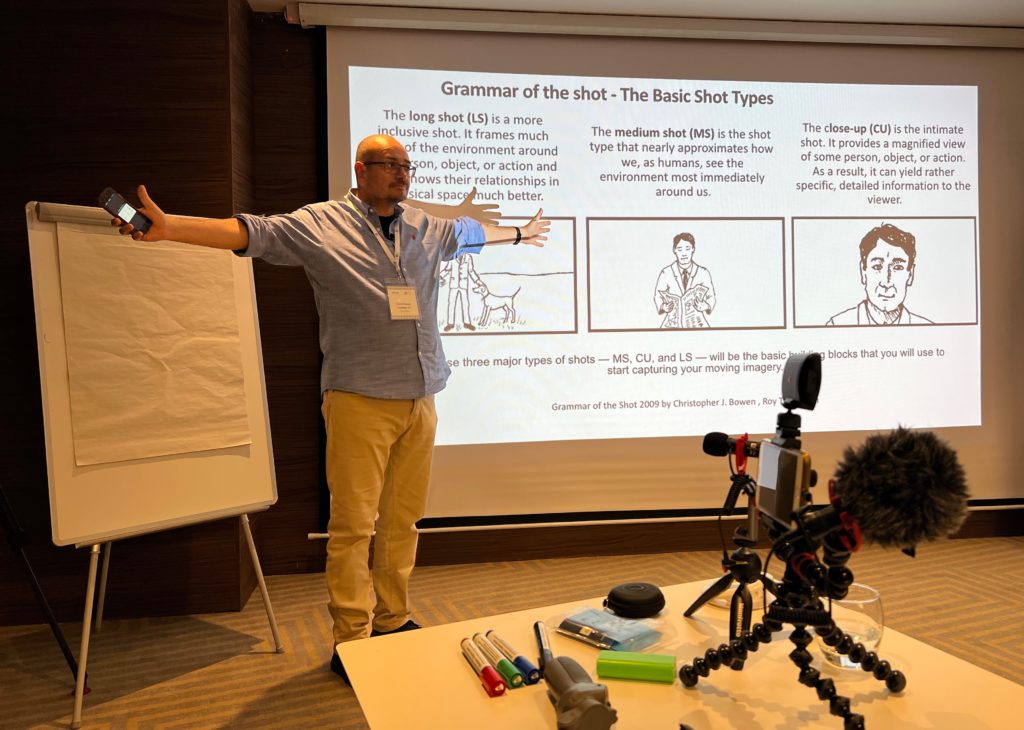
David Hands explains camera shots for use in mobile journalism
Abu-Fadil, Saady and Hands explained the language, terminology, organizations, international resolutions, and laws related to migration, refugees and human trafficking; the need for being ethical in covering the subject; the importance of safety, notably of women journalists, physical and mental health issues/trauma for media in coverage of migrants, refugees and human trafficking; and, learning mobile journalism skills for shooting and editing multimedia packages
The trainers provided participants with tips on interviewing techniques, notably when dealing with traumatized and displaced persons. The journalists interviewed members of Tunis-based NGOs that deal with migrants and refugees and one group interviewed a Syrian refugee who settled in Tunisia.

Trainees interview Syrian refugee living in Tunisia
Abu-Fadil, Saady and Hands used presentations and videos, showed documentary films, provided case studies, and conducted a series of exercises to test the participants’ grasp of the topic.

Abu-Fadil, Saady and Hands flanked by trainees
The participants produced pieces based on their interviews and at the end incorporated the interview with elements from the workshop’s presentations into a larger story.


